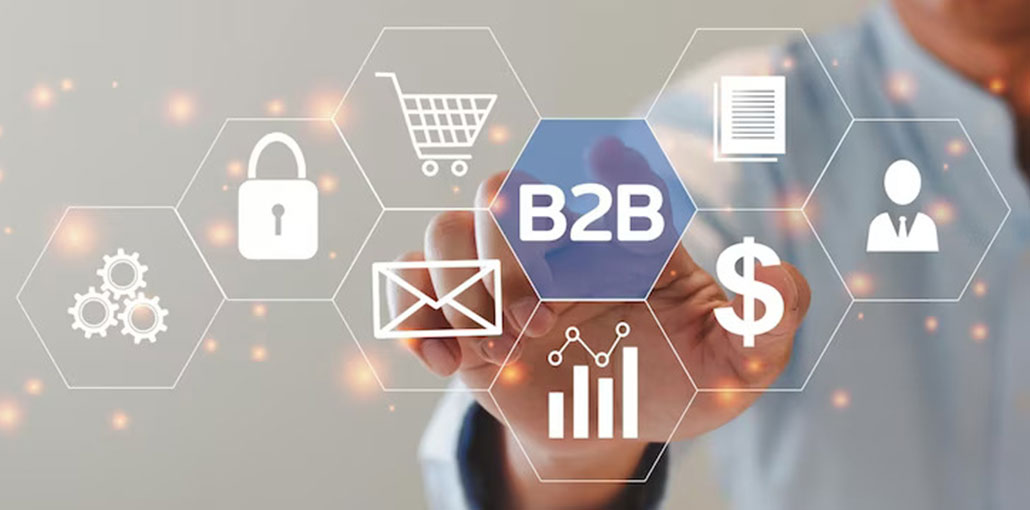When you work in a B2B environment, cybersecurity is especially important for the overall health of the company. As such, managers and employees should be aware of certain things. When you provide training for cybersecurity, make sure it is comprehensive but also straightforward enough for non-technical individuals to understand. At the very least, it should include overviews of the following information.
1. Determine What Information You Need To Protect
What kind of data does your business primarily work with? The very first thing you need to do is determine what information your organization needs to protect. Then, share that knowledge with your staff. Whether someone wants to share file using link or access his or her email, each employee should be aware of data security precautions to take in each of these scenarios.
Also read: Top 9 Ways to Protect Your Business’s Sensitive Data
2. Be Extra Careful When Working Remote
Working remotely has numerous benefits, but it can also increase the risk of hacking, depending on where employees connect from. Although hacking can occur anywhere to anyone, it is particularly common in remote environments. As such, you should train employees to be extra careful in B2B interactions when working remotely. Steps such as setting strong passwords on home wifi and installing solid antivirus protection can be helpful for preventing cyber invasions when employees are not in the office.
3. Use Special Cloud Services
When it comes to small business cybersecurity, cloud-based services are good options for protecting your information from various network threats. Generally, these services provide the same level of protection that in-office solutions provide but they come without the physical maintenance costs.
4. Train Employees About Cybersecurity
How much effort do you put into training your employees on cybersecurity? In general, it is always a smart move to ensure that you train employees about the most common online security principles as far as risks and prevention. As an organization, establish basic security practices and policies for employees and outline Internet use guidelines that are easy to follow. Depending on your needs, there are a variety of training resources available through third-party providers, both in-person and online.
5. Ensure You Have Firewall Security for Your Internet Connection
How safe is your company’s internet connection? Because most hacks occur via online networks, having firewall security is vital to the protection of your entire online infrastructure. As a set of related programs that prevent outsiders from accessing data on a private network, a firewall can act as an excellent barrier between hackers and your organization’s sensitive information. If you have employees who work from home, encourage them to set up their at-home firewalls, too.
6. Secure Your Wi-Fi Networks
Speaking of online security, something else to think about is how secure your wifi network is when you are working with B2B interactions. For example, if you or your employees use wifi in the office, another workplace, or at home, ensuring that the connection is secure is essential to maintaining data security wherever you work. You can also configure settings that will allow you to hide your wifi network so that hackers cannot even see it.
Also read: How to Build a Cybersecurity Strategy for Online Business
7. Understand the Cybersecurity Threats Your Business Faces
How familiar would you say you are with the most common cybersecurity threats that your business faces? For most people in leadership positions, there are a lot of questions. Unless you already work in an online technical field, this is totally normal, so do not feel bad about it. Instead, find ways to increase your awareness and a general understanding of the various cybersecurity threats that your business is at-risk for. Whatever resources you use to learn this information, be sure to share them with others at your company so that everyone is on the same page.
8. Limit Employee Access to Data and Information
How many of your employees have access to sensitive data and information within your company? Depending on the type of roles you have outlined, you may also consider limiting the authority for software installation and other data systems. For example, only grant permissions to programs that each employee needs to complete his or her job. This will prevent employees from unintentionally running into security issues with unfamiliar programs while also reducing the number of login access points altogether.
Improving the general cybersecurity awareness of any B2B company should be a priority to ensure online safety for all stakeholders. Follow these tips to improve the online security of your business as well as the ones that you work with on a daily basis.










Leave a comment